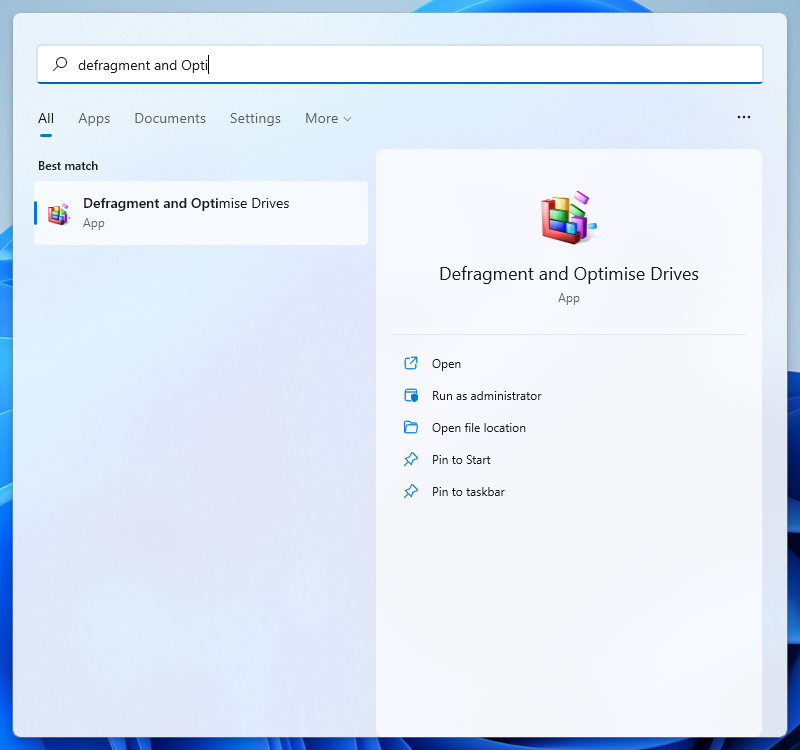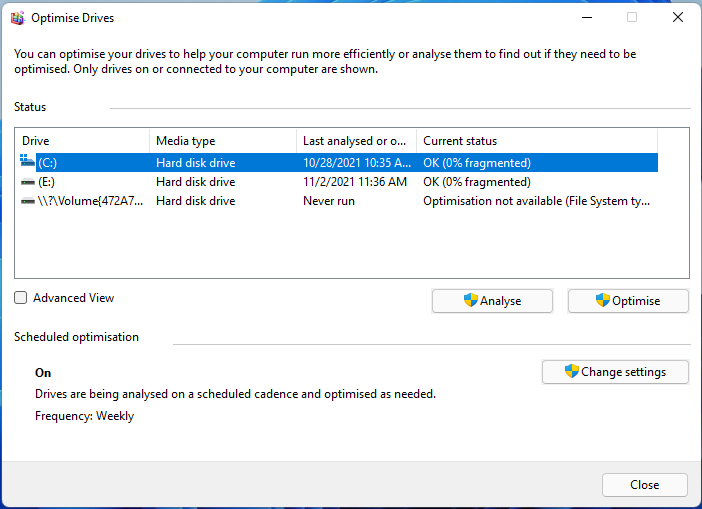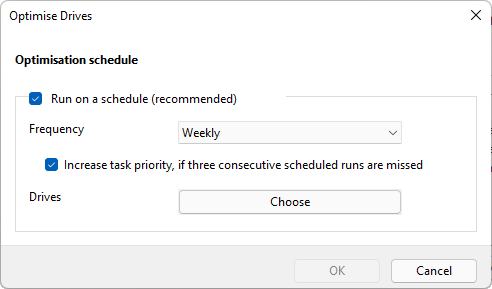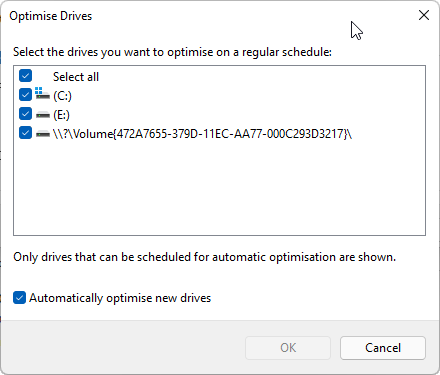How to Schedule Defrag Windows 11, 10
Why schedule defrag Windows 11/10 PC?
Choosing a hard disk drive (HDD) over a solid-state drive (SSD) can lead to the issue of file fragmentation. Fragmentation occurs when a file is broken into smaller pieces and stored in different locations on the hard drive, making it harder for the computer to access and read the file efficiently. This can result in slower data transfer rates and decreased overall system performance. To deal with fragmentation, users can use disk defragmentation software, which reassembles the fragmented pieces and stores them in a contiguous location on the hard drive, improving system performance and reducing the likelihood of file corruption.
1. Fragmentation
Traditional hard drives work in a way that causes discontinuous files to be generated during the reading and writing process.
When you delete files, the space is released, but if new files are created, they'll be stored in the same space, leading to fragmentation, where the new files are split into pieces to fit in the available space on the disk.
When files are stored continuously, the hard drive can read the entire file in one go. However, if the file is fragmented, the hard drive must locate and read the file in multiple locations, which can be time-consuming, especially for mechanical hard disks. In the case of a continuous file, the disk can complete one revolution to read all the data, but with fragmented files, the disk needs to rotate multiple times and the read head must move to different locations, resulting in slower data access.
Disk fragmentation occurs when the operating system saves files in non-contiguous clusters on the hard disk, leading to increased seek time and decreased performance.
2. Schedule disk defrag
Defragmentation is crucial because it helps improve the performance and efficiency of the entire system by rearranging messy files on the disk, reducing fragmentation that can slow down the system.
3. Do Windows 11/10 automatically defrag the disk?
Users can manually run the built-in Windows 11/10 defragmentation program or schedule a defrag task to regularly defragment a selected disk. We'll provide more details in the next part.
Schedule disk defrag methods for Windows 11/10
To schedule defragmenting your hard drive in Windows 10 and Windows 11, you can follow these steps: right-click on the Start button, select "Settings", then choose "Update & Security", followed by "Storage", and finally click on "Optimize" and select the drive you want to defragment. You can also schedule the defragmentation process by selecting "Change" and choosing the "Run" option, then selecting the frequency and time of day you want the defragmentation to occur.
Method 1. Schedule defrag Windows 11/10 via Disk Optimize
To schedule disk defragmentation in Windows, you can search for the "Defragment and Optimise Drives" program and launch it to set up a schedule for defragmentation.
Step 1. Type " Defragment" in the search box, and open the "Defragment and Optimise Drives" app.
Step 2. In the program, please click "Change settings" to set the schedule.
Step 3. Once you click "Change settings", a pop-up window will appear where you can choose the frequency and select the drives you want to defragment regularly.
After setting all, you'll return to the program's interface. You can also manually run the defragmentation by clicking "Optimise".
Method 2. Schedule defrag Windows via a practical defrag tool
Although the Windows built-The tool provided by the product has limitations in setting personal schedule settings for defragmentation, whereas Qiling Disk Master Professional offers more flexibility and customization options, allowing users to set specific dates, times, and fragmentation levels, resulting in a more intelligent and efficient defragmentation process.
This program supports Windows 11/10/8/8.1/7/XP/Vista and also has a Server edition for Windows Server users.
Let's see details about this pragmatic tool.
Step 1. Install and launch Qiling Disk Master Pro, right-click the target disk or partition, and choose "Disk Defrag".
Step 2. You can view all used drives in the pop-up window, and to set a schedule, click the "Schedule" button. Alternatively, you can defrag the disk or partition directly if desired.
Step 3. In the schedule settings, you can choose specific drives, dates, and times to defragment them, then confirm the settings by clicking "OK".
Step 4. To set up a disk defragmentation schedule, click on "Conditions" and select the desired degree of fragmentation that will trigger the schedule to run. This allows you to automate the defragmentation process based on the level of fragmentation on your disk. Additionally, other options are available to create a more detailed and customized schedule.
After setting all options, you'll return to the Defragment window. You can also manually defragment disks and drives if you prefer to do so before scheduling.
Final lines
To set a schedule for disk defragmentation in Windows 11/10, you can use the built-in Disk Defragmenter tool, which allows you to schedule a defragmentation task to run automatically at a specified time. Alternatively, you can use a third-party tool like Qiling Disk Master, which can also be used in other Windows systems, to schedule a defragmentation task and enjoy its features.
AOMEI Backupper has other powerful features such as "Convert to GPT/MBR", "Migrate OS", "Disk Clone Wizard", etc.
Related Articles
- 3 Ways to Defrag Hard Disk on Window 7 PC
Learn to defrag hard disk in Windows 7 in 3 ways with two Windows tools and a free defrag tool. - How to Defragment External Hard Disk in Windows 10
Learn how to defragment external hard disk with Windows tool and with an external hard drive defrag software. - Toshiba NTI Backup Now EZ Free Alternative and Guide
Qiling Disk Master Standard is more than a Toshiba NTI Disk Master Now EZ free alternative, it is an independent and powerful backup software.




